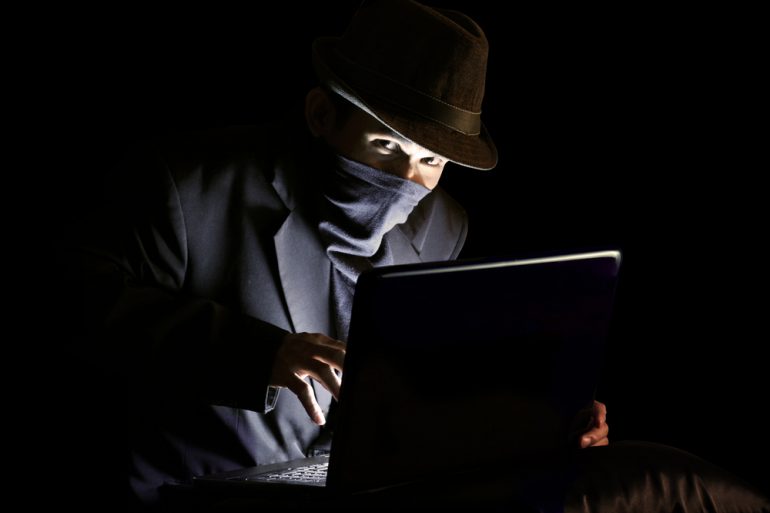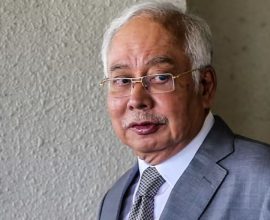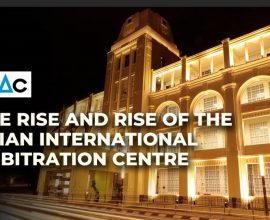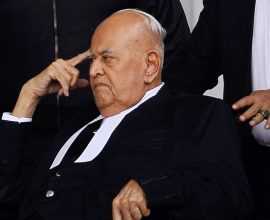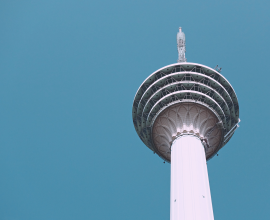Should enforcement agencies publish evidence to the public?
The MACC’s recent publication of 9 telephone recordings has set the nation abuzz. Is this within the Rule of Law?
Is this legal? Can it be done?
Those questions are uppermost in everyone’s mind.
Recognise that this is a defining moment in our fight for civil liberties
Two points are crucial: the first is your recognition that this is a defining moment in our quest for greater civil liberties.
What we do with this moment will have longstanding consequences on the life of our descendants. To live in a nation with eroding civil liberties is to live in hell.
Second, do not be blinded by arguments on expediency when determining legal rights.
If you say, ‘He did it, he deserves it, why should he have rights?’ – then remember, you have just killed the presumption of innocence. You have already convicted him without a trial. If so, this administration is no better than the previous one.
Today it may be Najib or Rosmah – tomorrow it may be you.
So let us start somewhere logical: is there such a thing as the right to privacy? When can that right be overcome?
Sultan Khan’s Question
In 1996, Lord Nolan famously said,1R v Khan 1996 (HL)
“It would be a strange reflection on our law if a man who has admitted to his participation in the illegal importation of a large quantity of heroin should have his conviction set aside on the ground that his privacy had been invaded.”
In 1992, Khan arrived at Heathrow on a flight from Pakistan. Nawab accompanied him.
Both were stopped and searched. Nawab had £100,000.00 worth of heroin on him. When he was searched, Khan had none, pleaded his innocence and was eventually released. They charged Nawab.
Some months later, in 1993, Sultan Khan visited a home in Sheffield.
One Bashforth lived there. The police had secretly planted a recording device in Bashforth’s home.
The men had no idea that their conversation was being secretly recorded. The contents of the conversation proved that Khan had a role with Nawab in the earlier crime. Khan was charged.
The prosecution produced the recording before the court.
It wished to show that Sultan Khan had taken part in the crime.
The prosecution admitted that the police had planted the device in breach of Khan’s civil liberties and had caused some damage to the property.
Should the court accept the evidence in the secret recording?
Khan argued that the evidence was inadmissible.
He said the judge should have excluded it.
The case turned on a convention.
Article 8(2) of an European Convention guaranteed an individual’s right to privacy, family life, home, and personal correspondence.2Article 8(2), European Convention for the Protection of Human Rights and Fundamental Freedoms
Under Article 8(2), no public authority could interfere with the exercise of such a private right, except if it was in accordance with the law which must be –
‘[In] the interests of national security, public safety or economic well-being of the country, for the prevention of disorder or crime, for the protection of health or morals, or for the protection of the rights and freedoms of others.”
Eventually, the House of Lords ruled that Article 8(2) had not been violated – and ruled that the court could accept the evidence. But remember, that evidence was only shown to the court, and that too after Khan was charged: not before. Nor was it published to all and sundry.
So who recorded the MACC sound clips?
We are not told; but we can look for answers elsewhere.
The modern world
Forget about sinister motives. Look at the modern world.
In 2005 Steve Jobs secretly developed iPhone 2G. He released it on 09 January 2007. The world has not been the same ever since. By 2017, some 1.2 billion iPhones had been sold, and more than 2.25 million apps had been released. Samsung records twice that number. Huawei is not far behind.
The plethora of hand-held smartphones have enabled developers to answer specific needs: they now produce apps that allow secret listening, recording and transmission of private communications. They are not difficult to find.
Privacy is a right
We start with the right to privacy.
The right to privacy is part of the Constitution, although the Constitution does not say so expressly.
The Constitution does not record some basic rights. There is no outward expression of these basic rights because it is obvious. The Constitution does not say that you have a right to breathe clean air, or to be happy. That is implicit.
So, just because a right is not recorded in the Constitution does not mean the right does not exist.
Such is the fundamental right to privacy.
Although your right to privacy is guaranteed … in reality, it is long gone
There are several modern communication devices in your home. A raft of poorly thought out legislation across the world have not protected the public. Nor have they adequately answered the cries of the civil libertarians.
The dilemma
The problem has always been two conflicting points. Every person has a right to privacy. We should never allow the government to intrude into a person’s private life or to take control of it.
‘Big Brother is watching you’; the Orwellian ‘1984’, Tony Scott’s ‘Enemy of the State’ starring Will Smith – are all stories that reflect this fear.
Those who champion civil liberties say that once the right of privacy is handed over to the government, all is lost.
Does the law recognise situations where the right to privacy can be breached?
Those who commit crimes desire their concealment. If evidence of these are discovered, the criminals do not want any evidence to lead to – or be used against – them.
The 1996 Sultan Khan case is but one example.
National Security
In many countries, there are specific laws that allow the security services to monitor conversations.3For example, the UK Security Service Act 1989
Law Enforcement
Then there is law enforcement. Law enforcement services (police, anti-corruption agencies, customs agents) worry about two things: the prevention of crime; and the collection of evidence to prosecute criminals.
Prevention of crime
If the police know there is a plan to rob a bank, the law is less strict. It allows a senior police officer to authorise someone to intercept or record private communications. They can demand that the service providers divulge private details.4For example sec. 116C of the Malaysian Criminal Procedure Code Usually there are rules that regulate this kind of activity.
So it would be hard to argue there should be no secret recordings
If its aim is to preserve national security, prevent the breach of the criminal law or preserve the financial integrity of the nation, it would be hard to argue that the government should not be allowed to tap communications.
If two spies were exchanging information so as to destroy the nation, it would be silly to argue that the state cannot monitor them secretly. In times of war, in particular, the courts have repeatedly shown that they will allow intrusion into private rights.
Again, the law should not allow a man to poke his nose into his neighbour’s financial affairs – unless the latter was funding terrorist activities.
If two individuals decide to murder a person, to argue that the police should not secretly listen to their communications, so as to save the victim, would be illogical.
Who should authorise the secret collection of evidence for prosecutorial purposes?
Across the world, there are laws that allow enforcement agencies to secretly collect prosecutorial evidence.
So far, in a worldwide slew of inadequate legislation, the United States stands above the rest. There are explicit constitutional guarantees that protect privacy.
Then it has federal laws.
If the government intends to tap any communication, senior US police officers cannot authorise such an act. The law hands over that power to an independent arm – the judiciary.
Thus the police cannot secretly gather information unless they have the court’s permission. This prevents abuse.
There are also strict US laws that examine the source of the information, its originality and reliability, and if the information is produced at a trial, whether it would be unfair to the accused.
In the UK, long before written laws came into place, the Home Office has been issuing clearly articulated guidelines to a disciplined police force.5 e.g. The Home Office Guidelines of 1984, Reg. v. Preston [1994] 2 A.C. 130, 166C-G.[/mfn] In the case of police investigations, a senior officer authorises the phone tapping. So also in the MACC Act. But that is a debate for another day. (1). To members of the security forces for the protection of the State, or to another nation for the latter’s protection; (2). To members of local enforcement agencies to stop crimes; and (3). To the court and parties in judicial proceedings in criminal cases. What do you think? It was a crime to make such recordings. 5 Section 5 of the Wireless Telegraphy Act 1949
Are there such protections in Malaysia?
In Malaysia, there is no such judicial restriction.
The actions of enforcement officers are not supervised by the judiciary.
This is not good – it may even be unconstitutional.
Can the enforcement agency release private information?
If an enforcement agency has come into possession of information – such as a private conversation between two individuals – when and in what circumstances could it publish it?
First, none of the participants have been charged with crimes relating to those matters in the recordings. It is questionable if such crimes fall under the purview of the MACC – which concerns itself with only corruption offences. Anti- Money Laundering offences – with their spidery connections to other offences – fall under the Attorney General’s purview.
Nonetheless, three circumstances justify what can be recorded, and to whom it may be released:
Did the MACC’s publication fall within these limitations?
What about the publication of secret recordings to the world at large?
Can an enforcement agency publish secretly recorded conversations – of alleged crimes – to the press?
There are two examples.
A Jockey’s Civil Suit
Francombe was a champion jockey. Someone secretly recorded his telephone conversations with his wife. This went on for three months. Some 38 conversations were recorded.
These conversations also amounted to a trespass into Francombe’s property.
Daily Mirror bought the recordings.
The newspaper told Francombe they intended to publish it – but had not done it.
The recorded conversations revealed that Francombe had breached racing rules.
Because his races involved large sums of monies, Daily Mirror said that this amounted to evidence of ‘iniquity’ that was ‘anti-social’: the public’s right to know of such conduct offset Francombe’s right to confidentiality.
Francombe sued them for damages.
He complained that his right to confidentiality had been breached; and that there was a trespass to his property.
Before trial, he asked for a restraining injunction.
He also demanded that Daily Mirror reveal its source.
Could The Daily Mirror use the fruits of these crimes?
The Court of Appeal ruled that ‘public interest did not justify a breach of the criminal law’.
It recognised Francombe’s rights and granted the injunction.6Per Lord Donaldson and Fox LJ in Francombe and Another v. Mirror Group Newspapers Ltd and Others[1984] 2 All ER 408
It also said that once Francombe’s confidentiality had been breached, any defence that the newspaper could raise against a defamation suit (e.g. ‘fair comment’) was unavailable.
The second question was whether Francombe could force the newspaper to name its source.7British Steel Corp v Granada Television Ltd [1981], 1 All ER 417, [ 1981] AC 96; House of Lords
The court would not – at that early stage, and before trial – grant any such disclosure order; but on proper grounds, it may have been available after the trial.
Enforcement authorities cannot use law in an arbitrary manner – Malone’s case
Then there is the story of James Malone. He was an antique dealer.
The police believed that he was dealing in stolen goods. They recorded his telephone conversations and intercepted his correspondence. The Secretary of State for the Home Office – someone of the same rank as our Home Minister – had issued, by warrant, the authority to intercept these communications. The police did not publish this evidence to the public.
Malone was charged with dishonestly dealing in stolen goods.
He was acquitted.
Malone sued the UK Government, and asked that these interceptions be declared illegal.
The High Court threw him out.
He appealed to the European Court of Human Rights. He said his right to privacy under Article 8(2) had been breached,8Malone v. United Kingdom (App. no. 8691/79) [1984] ECHR 8691/79 just like Sultan Khan.
The UK Government argued that it had a right to intercept communications when these related to the commission of an offence; indeed UK domestic law allowed it.
The European Court of Human Rights said that while the UK could legally intercept such communications under its law, the government had to act ‘in accordance with the law’.
What does the phrase ‘in accordance with the law’ mean?
The phrase ‘in accordance with the law – ruled the court – ‘related to the quality of the law, and required’ such law ‘to be compatible with the rule of law’.
This meant that any domestic law must have adequate protection for the citizenry ‘against arbitrary interferences by public authorities.’
The law in England and Wales, ruled the European Court of Human Rights, had failed to provide the citizens with ‘the minimum degree of legal protection to which citizens were entitled to under the rule of law’ and, accordingly, Article 8 had been violated.
So how now?
True it is that Malaysians are not bound to the European Convention for the Protection of Human Rights and Fundamental Freedoms (‘ECPHRFF’).
So what?
The principles of ECPHRFF did not leap out of the sky.
Rule of the Jungle or Rule of Law ‘in accordance with the Rule of Law’?
The sound principles behind ECPHRFF derive from fundamental doctrines that make up the fabric of the Rule of Law.
These are universal – they are recognised the world over.
It would be idle to argue that Malaysian MACC Act, or MACC’s actions are ‘not subject to the rule of law’ or that it is ‘so different’ from the principles that lie at the heart of ECPHRFF’ that we could, as a nation, evade the Rule of law.
Note these points:
The alleged offences in the tapes were non-MACC offences: e.g. subversion of authority, conspiracy etc.
Second, at the time MACC published these recordings, it had not charged the participants for the type of offences disclosed in those recordings. In fact to this day, they have not been charged. If so, why were these tapes released?
Again, two participants are now amidst trials for other offences. Would not these new disclosures cast them in a bad light there?
It does not matter who the participant behind the recorded telephone conversations was: be he a former prime minister or a poppadom seller at Brickfields.
Each is innocent until proven guilty; each must be afforded every protection the law has.
Otherwise, driven by one agency’s over-enthusiasm, the nation may overstep the bounds of moderation – and in the name of enforcing the law – fall into the deepest abyss of injustice.
Who would be the losers then?
[The author expresses his gratitude to Prabhkirat Singh for his assistance].

